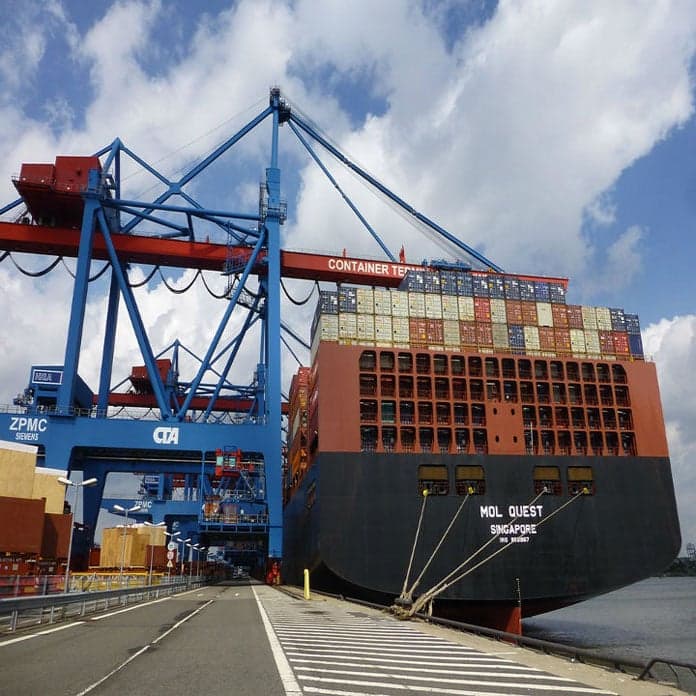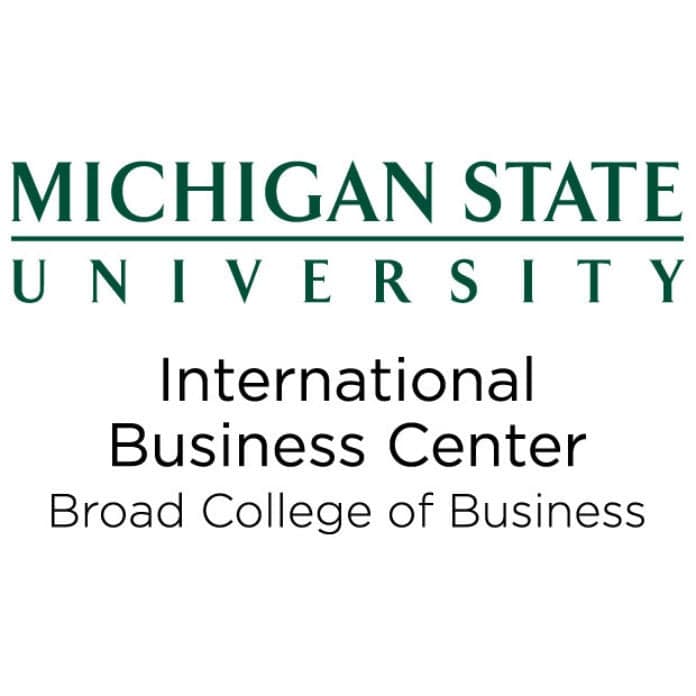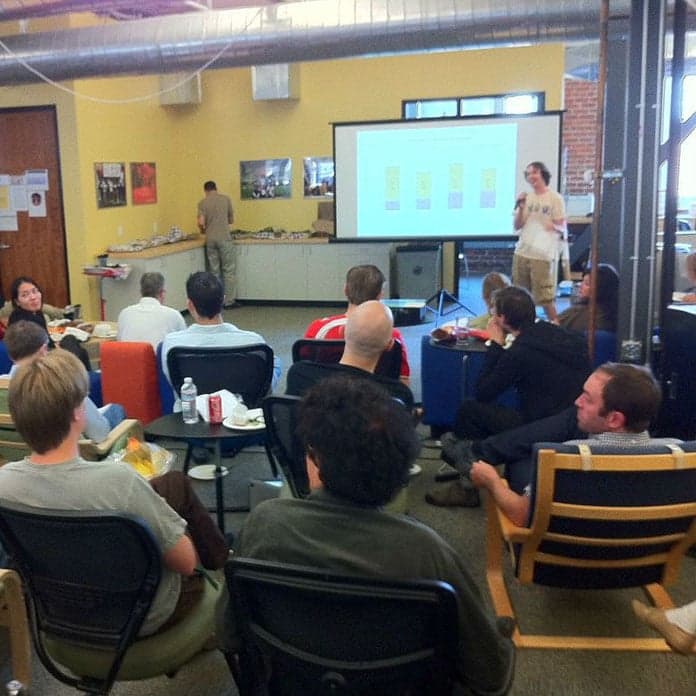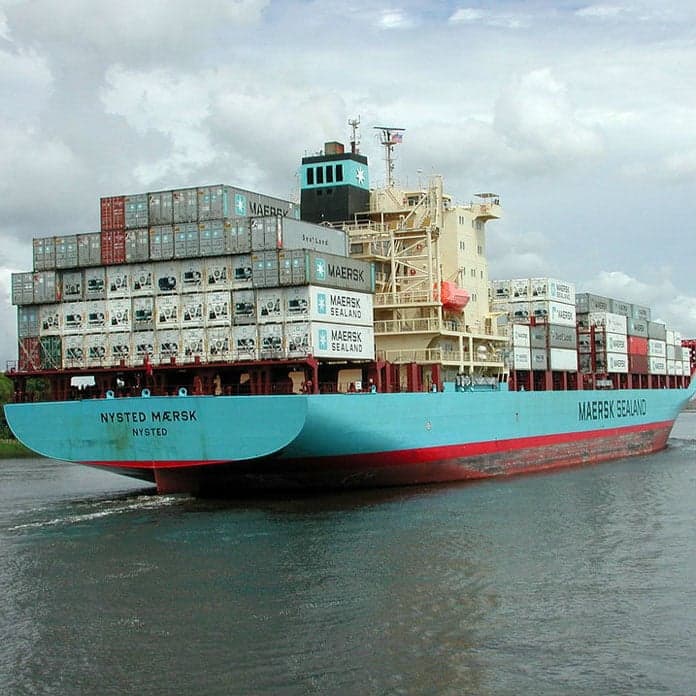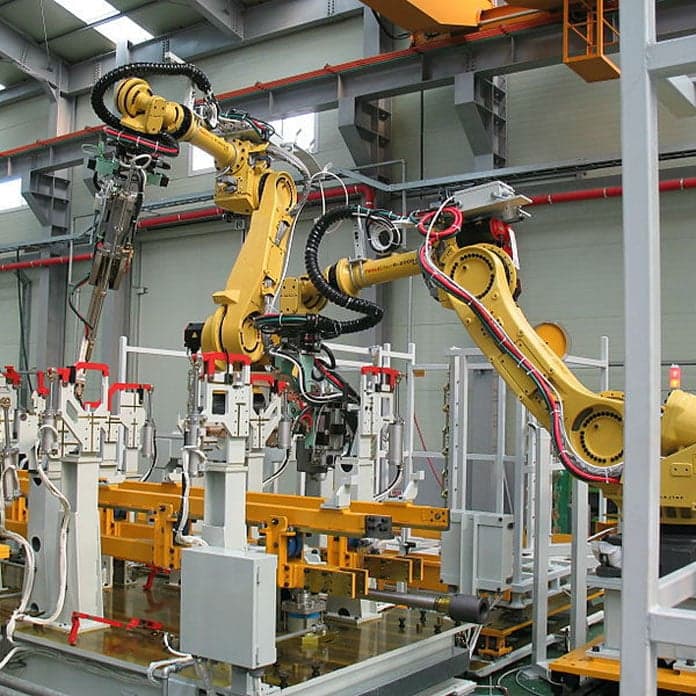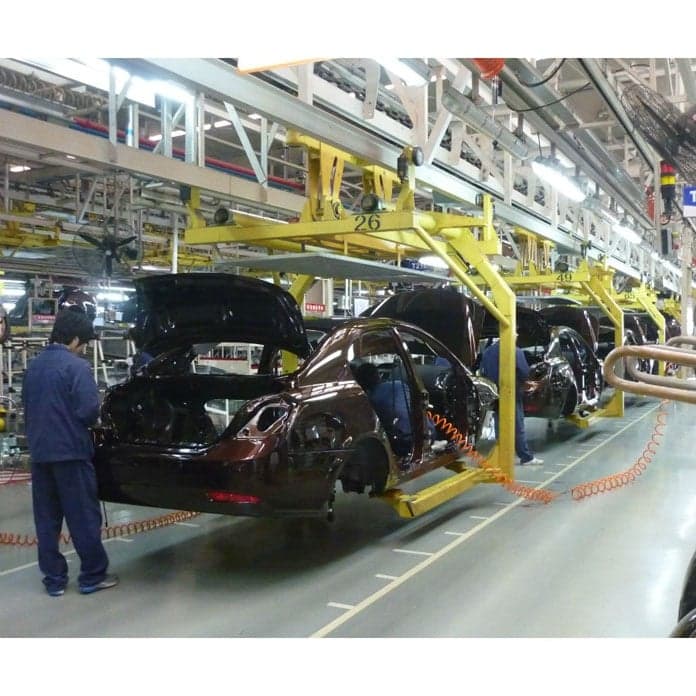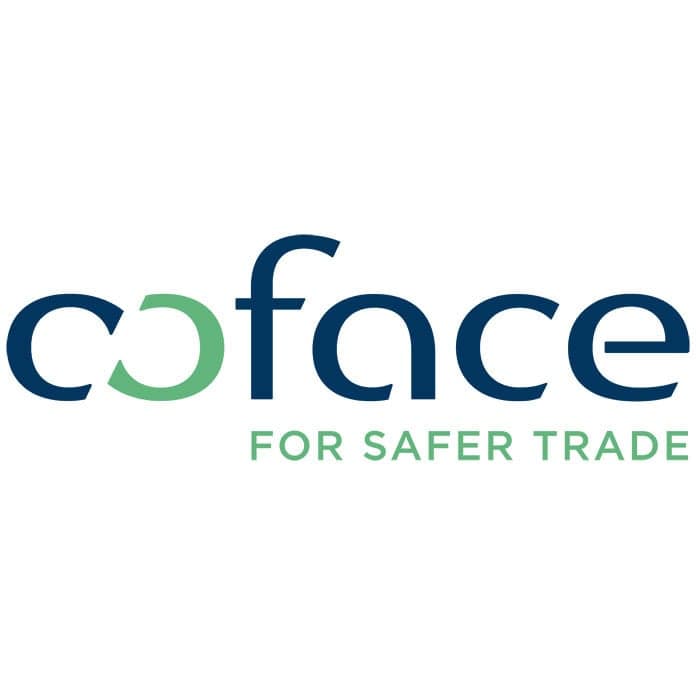On April 26, United States President Donald Trump announced plans to "re-negotiate" the terms of the North American Free Trade Agreement (NAFTA) with Canada and Mexico. As related in a White House press release, the administration had intended to completely withdraw the U.S. from the trade deal, but was dissuaded from doing following conversations with Canadian Prime Minister Justin Trudeau and Mexican President Peña Nieto. At present, NAFTA stands in its current form, although the U.S. has explicitly stated its desire for major changes to the trade deal. The situation is predictive of a potentially volatile future for NAFTA and trade relations between the U.S., Canada, and Mexico.
globalEDGE Blog Archive April 2017
Publish Date:
Large consumer good staple companies have been impacted by slower sales at the end of the first quarter of 2017. Companies in the food beverage and consumer staples segments are being hard pressed to adapt to changing tastes, while other large companies are losing market share to technologically adept disrupters.
Publish Date:
Recent reports published by the World Trade Organization (WTO) have forecast a remarkable recovery in global merchandise trade for 2017. Last year, global merchandise trade failed to reach its projected growth of 1.7%, ending the year with a growth of 1.3%, marking 2016 with the slowest growth since the financial crisis. Among other indicators, WTO Director General Roberto Azevedo blamed the poor performance in 2016 on the slowdown in emerging markets, stating that imports hardly grew in volume terms. However, the six-year trend of disappointing growth may be coming to an end as the world economy gradually begins to regain momentum. In a report released on April 12th, the WTO predicts a 2.4% growth in global merchandise trade by the end of this year, stating that, for the first time in several years all regions of the world economy should experience a synchronized upturn in 2017.
Publish Date:
Flights have increased and ticket prices have gone down. In the past recent years, airlines have experienced a higher demand in their market than ever before. This is partially due to the decline in ticket prices. The decrease in ticket prices has made flying more affordable for more people, however there are also some downsides.
Publish Date:
The Life Cycle Hypothesis (LCH) is an economic model developed by famed economist Franco Modigliani in the early 1950’s, which attempts to explain the saving and consumption patterns of individuals over their lifetime. The crux of the hypothesis is that by assuming all individuals maintain stable lifestyles, they will plan to even out their consumption as best they can over their lifetime. This implies that an individual will transition through multiple phases of saving and consumption patterns throughout their life. In their youth, before entering the workforce, an individual will borrow against future earnings, many to pay for education and training. Once that individual enters the workforce, they will become a net saver, as they put money away for their eventual retirement. Finally, in the twilight stages of their life, once an individual retires, they will become a dis-saver, as they begin to drain their accumulated retirement savings.
Publish Date:
Oil prices worldwide are in decline. Much of the decline in oil prices has been contributed to rising oil production in the United States. To combat this it is expected that OPEC will decide to continue its cap on oil production at their meeting in May. As recently as one week ago it was reported that Saudi Arabia was gathering support from other OPEC countries in extending their cap on production.
Publish Date:
In the past decade, technology has changed the way people operate dramatically. Uber has enabled a user to order a car to their house and see, in real time, their ETA (estimated arrival time). Grubhub has helped one order food from places which usually do not deliver so the individual can stay on the couch and continue binging on the newest Netflix hit. Founded in 2008, Airbnb has now taken the world by storm, connecting travelers to places to stay in over 65,000 countries and 191 cities. Travelers all over enjoy the vast availability of options they have at their fingertips, from a single bed apartment to spending a night in a castle. However, this has begun to cause strife with the American Hotel and Lodging Association and hotels all over the world.
Publish Date:
This Friday, April 18th, the International Business Center at Michigan State will be holding a workshop in Madison, Wisconsin, as part of the International Business Institutes on the Road educational effort. The On the Road workshops are an extension of the flagship International Business Institute for Community College Faculty (IBI) which was offered in East Lansing, Michigan, from 1995 to 2015. The IBI’s goals are to provide participants with the knowledge, experience and resources they need to internationalize general business courses and/or develop specialized international business courses at the two-year college level.
Publish Date:
As the world is becoming more connected, the courier, express & parcel (CEP) industry is growing and evolving. Online shopping has induced this growth significantly, with companies such as Amazon and Alibaba playing a major role. The ease with which a consumer can find items online from a variety sellers with many delivery options and often reviews and ratings, has shifted the purchasing power significantly to the hands of consumers. This forces retailers to offer better service and cheaper delivery. This, in turn, has created a lot of issues for CEP companies and has forced them to rethink their strategies, as costs have been rising faster than revenues. Also, emails and social media have almost completely replaced the use of mail delivery, which required postal companies to shift their main focus to parcel delivery products, services, and supply chains that would create better revenue streams.
Publish Date:
Export.gov is a great resource for your international business needs. The website contains a wide variety of tools and information to help you and your business succeed with international trade. Recently, Export.gov released a series of new videos to help educate small and medium-sized companies on exporting, and to encourage these businesses to start exporting or expand their exporting operations.
Publish Date:
In the last blog of this week's series, we take a look at the airplane manufacturing industry.
2017 has proved to be a successful year for airplane manufacturing so far. The industry experienced a surge in aircraft orders in February, putting it on track for a record year of directories. In the United Kingdom, in particular, the number of commercial aircraft ordered by airlines jumped to 43 last month from just 4 in February of the previous year, according to the Aerospace, Defence, Security & Space Group. These figures are based on orders from Airbus, Boeing, Bombardier (Canada), Comac (China), and Irkut (Russia).
Publish Date:
Part four of our transport manufacturing blog series examines the role emerging markets play in the industry.
Emerging markets are proving to be key areas for future growth in the transport manufacturing industry. The 2017 Emerging Markets Index from Agility and Transport Intelligence shows continued strength in logistics, infrastructure, and investment potential for large emerging markets, including the United Arab Emirates, Malaysia, and Saudi Arabia. According to the index, countries such as India and Kazakhstan significantly strengthened their business capacity over the past year, warranting further attention from international logistics executives. In addition, China, India, and Brazil have become a hotspot for automotive and aircraft sales. Despite frequently cited concerns in dealing with emerging markets—government corruption, tax laws, and customs—more corporations within the transport manufacturing industry are hoping to expand their business in these countries.
Publish Date:
In part three of our transport manufacturing blog series, we look at high speed trains.
In 2013, the Japanese government set the goal of tripling its infrastructure exports, such as nuclear plants and bullet trains, to a nearly $262 billion valuation in hopes of continuing to bolster its economic growth. Pros for the Shinkansen bullet train include a sound safety record, low emissions, and punctuality, but despite its technological advancements, foreign buyers remain unconvinced of the feasibility of the bullet trains.
Publish Date:
This week, the National Business Education Association (NBEA) is holding its annual convention in Chicago, Illinois. NBEA is celebrating its 125th anniversary this year, and the convention will include over 70 educational sessions which will cover a variety of topics related to business education. Today is the first day of the convention, which will run throughout the week, ending on Friday the 15th. Check out the NBEA 2017 Convention page to learn more about conference details and the topics to be covered.
Publish Date:
In part two of this week's transport manufacturing blog series, we look at current issues affecting international trade in the auto industry.
Implemented in 1994, the North American Free Trade Agreement (NAFTA) consists of a trilateral compromise signed by Canada, Mexico, and the United States. The initial goal of NAFTA was to eliminate barriers to trade and investment between the U.S., Canada, and Mexico. Prior to NAFTA, American cars sold in the United States were made almost exclusively in the U.S., and most vehicles were sold in the market in which they were made. When NAFTA came into effect, U.S. automakers began diffusing their production across the trade zones, particularly taking advantage of the cheaper labor and lower production costs in Mexico. But, according to various economists, it is unclear if scrapping NAFTA would shift plants and jobs back to the United States.
Publish Date:
This week, the globalEDGE blog is diving into the transport manufacturing industry. Over the next four days, we will take a look at automotive, airplane, and train manufacturing, along with a blog on the impact of emerging markets on the global industry.
The transportation manufacturing industry is comprised of businesses that manufacture vehicles, vehicle parts, and the infrastructure that supports them. Sectors in the industry include passenger cars, semi-trailer trucks, container ships, airplanes, and trains. Although most picture major companies such as Ford, Toyota, Boeing, or Airbus when thinking of the industry, smaller businesses that supply the parts and electronics are equally important.
Publish Date:
Just last month, the United Kingdom Parliament triggered Article 50 of the Lisbon Treaty, officially commencing the necessary processes for leaving the European Union. The entire operation is expected to take two years, and the U.K. hopes to set up the structure for a positive international investment climate during that time. As part of this pursuit, Prime Minister Theresa May began a multiple-day visit to Saudi Arabia on April 4 to discuss trade deals between the two nations. Saudi Arabia and the U.K. have been prolific trading partners for years; the talks were intended not only to maintain this relationship, but also to discuss future developments in defense, security, and economic reform. May's visit has been criticized by various international leaders, who have cited Saudi Arabia's record on women's rights as well as the country's involvement in the current Yemen conflict. Worries abound both outside and within the U.K. government that the nation may be overlooking human rights concerns in favor of favorable trade deals.
Publish Date:
Since implementing market reforms in 1978, China has recognized the fastest sustained economic expansion in history, with GDP growth averaging almost 10%. Much of China’s assent to the second largest economy in the world can be attributed to the growth and development of their manufacturing industry. In 1990, China accounted for less than 3% of the global manufacturing output by value; today they account for nearly 25%. However, the economic and demographic trends that stimulated China’s meteoric rise are shifting and China is being forced to shift their manufacturing strategies to remain on top of global manufacturing.
Publish Date:
Growing up, many kids turned to ketchup to go with every meal, from hot dogs to mac and cheese to scrambled eggs. Now, the condiment of choice has turned into Sriracha. In the past 16 years, the hot sauce market, specifically Sriracha sauce, in America has increase by 165%, which makes the market one of the fastest growing industries in the United States.
Sriracha is now becoming a global phenomenon with over 200 tons produced a week worldwide. David Tran, the creator of the spicy condiment, never trademarked his creation which has created more success for his name sake. Many imitations are produced in countries such as France, China, and Australia, which are sold alongside the original sauce produced by Huy Fong Foods.
Publish Date:
Some of the biggest names in business have made a statement when it comes to bridging the gender gap. Walmart, Coca Cola, Pepsi, Exxon-Mobile, General Mills, Campbell's Soup, Procter & Gamble, Johnson & Johnson, and Mondoleez have all banded together and committed to sourcing more from women-owned businesses. Walmart has already achieved their goal of buying $20 billion worth of goods and services from women-owned businesses in the United States over the past five years. However, women-owned suppliers still make up only 2% of their global purchases. This group intends to make an impact by encouraging similar companies to realize the many benefits of supporting women-owned businesses.
Publish Date:
Investors are investing more in equities in European markets, which is leading to a rally in the continent, despite fears driven by political uncertainty, such as Brexit and the upcoming elections in France. This is a reversal of 2016, where investors pulled out nearly $100 billion from the equities asset class, and this is seen as being driven by the hopes of a harmonized global expansion. Stock funds in American markets are facing outflows due to investor’s worries of high valuations, and political uncertainty around the current presidential administration's efforts to reach agreements on tax reform and the fiscal spending plan. It is thought that investor confidence in the global economic outlook and its resilience against shocks can be attributed to strong economic signs, such as purchasing manager indices reaching a high in the Eurozone, and easier financial conditions globally.
Publish Date:
globalEDGE is proud to be a sponsor of Coface's annual Country Risk Conference. The conference will be held on April 20th in New York City, and will focus on business to business trade around the world. Topics covered will include Brexit, how the United States' new trade policies will impact international trade, low oil prices, and the emerging markets in Central and Eastern Europe. Business professionals, consultants, and researchers are welcome to attend the event, and registration is available on Coface's site. To learn more about the conference, click here, and to learn more about country risk, visit our recently updated country risk pages.





